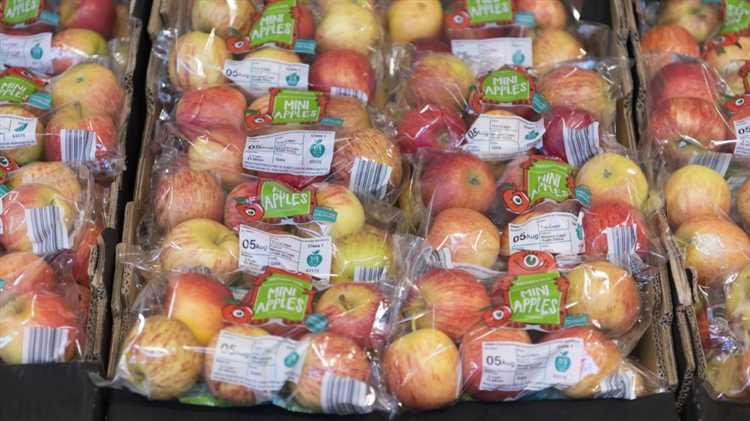
In the modern world, plastic is a widely used material for various purposes, including food storage. When it comes to storing vegetables, plastic bags have become a popular choice for many. However, there are both pros and cons to consider when using plastic bags for this purpose.
On the pro side, plastic bags provide an efficient and convenient way to store vegetables. They are lightweight and easily portable, allowing for easy transportation and organization in the kitchen. Plastic bags also help to keep vegetables fresh for a longer period of time by preventing moisture loss and reducing exposure to air.
Moreover, plastic bags can be sealed tightly, providing a barrier against bacteria, insects, and other contaminants that can spoil vegetables. This can help to extend the shelf life of vegetables and reduce food waste. Additionally, plastic bags are transparent, making it easy to see the contents without having to open them, which can further contribute to efficient organization and meal planning.
On the con side, plastic is not an environmentally friendly material. It is derived from non-renewable resources and takes a long time to decompose, contributing to pollution and the accumulation of plastic waste in landfills and oceans. Therefore, the use of plastic bags for vegetable storage has negative implications for the environment.
Furthermore, there is a possibility of chemical leaching from the plastic bags into the vegetables. Some studies suggest that certain chemicals used in the production of plastic can migrate into the food, especially when exposed to heat or acidic conditions. This raises concerns about the potential health risks associated with consuming vegetables stored in plastic bags.
In conclusion, while plastic bags offer convenience and efficiency in storing vegetables, their use has both pros and cons. It is important to weigh the benefits against the environmental impact and potential health risks. Alternative storage methods, such as reusable containers or bags made from eco-friendly materials, should also be considered to minimize the negative effects of plastic on the environment and personal health.
- Advantages of Storing Vegetables in Plastic Bags
- Preservation
- Storing Vegetables in Plastic Bags
- Alternative Preservation Methods
- Convenience
- Easy identification
- Portability
- Transportation
- Disadvantages of Storing Vegetables in Plastic Bags
- Moisture Retention
- Chemical Contamination
- Reducing Chemical Contamination
- Conclusion
- Environmental Impact
- Q&A,
- Is it safe to store vegetables in plastic bags?
- Are there any disadvantages of storing vegetables in plastic bags?
- What types of vegetables are suitable for storing in plastic bags?
- How should I store vegetables in plastic bags to maximize their freshness?
- Can I reuse plastic bags for storing vegetables?
Advantages of Storing Vegetables in Plastic Bags
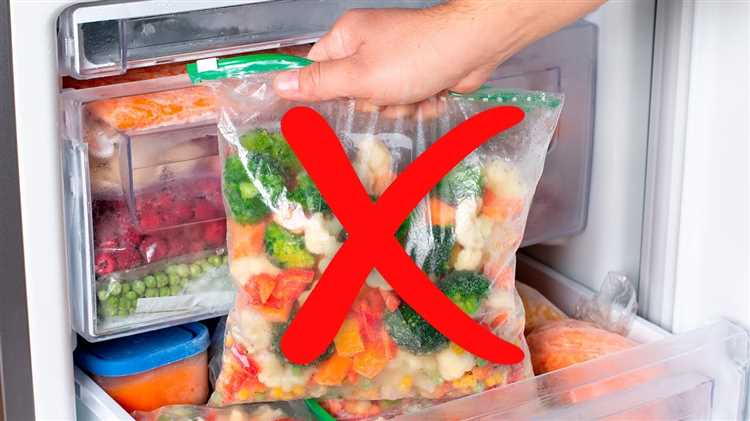
Storing vegetables in plastic bags can offer several advantages:
- Preservation of freshness: Plastic bags can help to maintain the freshness and quality of vegetables by protecting them from moisture loss and exposure to air, which can lead to wilting and spoilage.
- Improved shelf life: By creating a barrier against oxygen and moisture, plastic bags can help to extend the shelf life of vegetables, allowing them to stay fresh for a longer period of time.
- Convenient storage: Plastic bags are lightweight and easy to handle, making them a convenient option for storing vegetables. They can be easily sealed and stacked in the refrigerator or pantry, maximizing storage space.
- Protection from contaminants: Plastic bags can provide a protective layer that helps to prevent vegetables from coming into contact with dirt, bacteria, and other contaminants that may be present in the storage environment.
- Visibility: Transparent plastic bags allow for easy visibility of the contents, making it easy to identify the vegetables stored inside without the need to open the bag.
While there are benefits to using plastic bags for vegetable storage, it is important to consider the environmental impact. Plastic bags are not biodegradable and can contribute to pollution if not disposed of properly. Therefore, it is recommended to reuse or recycle plastic bags whenever possible to minimize their negative impact on the environment.
Preservation
Preservation is a crucial factor when it comes to storing vegetables, as it determines how long they will remain fresh and maintain their nutritional value. The right preservation methods can extend the shelf life of vegetables, allowing you to enjoy them for longer periods.
Storing Vegetables in Plastic Bags
One common method of preservation is storing vegetables in plastic bags. This can help to maintain the moisture content and prevent the vegetables from wilting or drying out too quickly. Plastic bags create a sealed environment that slows down the loss of moisture and helps to retain freshness. Additionally, plastic bags can provide a barrier against external contaminants, such as bacteria or pests.
However, there are some cons to consider when using plastic bags as a preservation method. Certain vegetables, such as leafy greens, may produce ethylene gas, which can cause the vegetables to spoil more quickly when enclosed in a plastic bag. This gas can build up inside the bag, leading to accelerated deterioration.
Alternative Preservation Methods
If you prefer not to use plastic bags, there are alternative preservation methods that can help extend the lifespan of your vegetables. One option is to store vegetables in breathable containers, such as mesh bags or paper bags, which allow for airflow and help to prevent the buildup of moisture. Another option is to wrap the vegetables in damp paper towels and then place them in the refrigerator, which can help to maintain their crispness and prevent wilting.
Some vegetables can also be preserved by freezing them. Blanching vegetables before freezing can help to kill bacteria and enzymes that may cause spoilage, although the texture and flavor may be slightly altered. Freezing can be a convenient option for long-term preservation, as it allows you to store vegetables for months and retain their nutritional value.
Ultimately, the preservation method you choose will depend on the specific vegetable and your personal preferences. Plastic bags can be a convenient option for short-term storage, but if you are concerned about the potential drawbacks, it’s worth exploring alternative methods to find the best way to preserve your vegetables.
Convenience
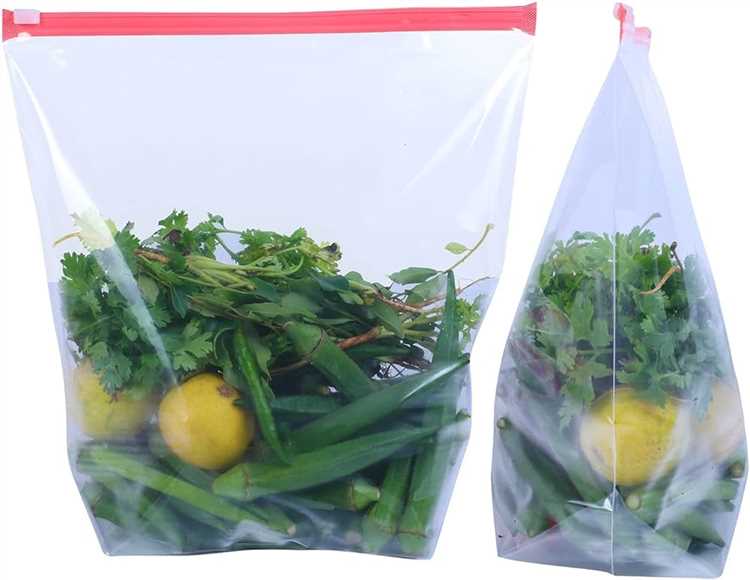
One of the biggest advantages of storing vegetables in plastic bags is the convenience it offers. Plastic bags are easily accessible and can be found in most households. They are lightweight, easy to carry, and can be sealed tightly to keep the vegetables fresh.
With plastic bags, you can store your vegetables in the fridge or pantry without worrying about them getting spoiled. They provide a barrier against moisture and contaminants, helping to extend the shelf life of your produce.
Easy identification
Storing vegetables in plastic bags also makes it easier to identify and categorize your produce. You can see through the bags, which allows you to quickly identify what vegetables you have on hand without having to open each bag individually.
This is especially beneficial when you have a variety of vegetables stored together. Plastic bags make it easy to separate different types of produce, preventing them from mixing together and potentially spoiling.
Portability
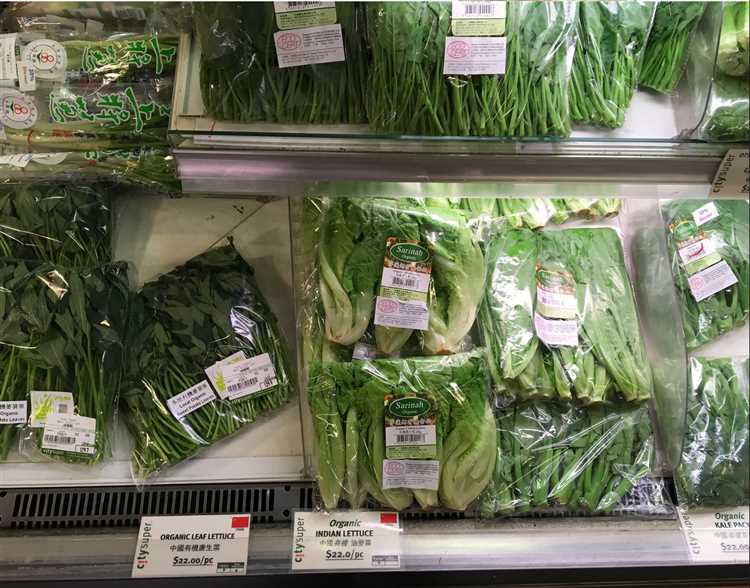
When you need to take vegetables on-the-go, plastic bags provide a convenient solution. They are portable and lightweight, making it easy to pack your favorite veggies for a picnic, camping trip, or a day at the office.
Plastic bags also make it easier to transport your vegetables from the grocery store to your home. They can be easily tied or sealed, preventing any spills or messes during transportation.
In conclusion, storing vegetables in plastic bags offers a range of conveniences. From easy identification to portability, plastic bags provide a simple and practical solution for keeping your produce fresh and organized.
Transportation
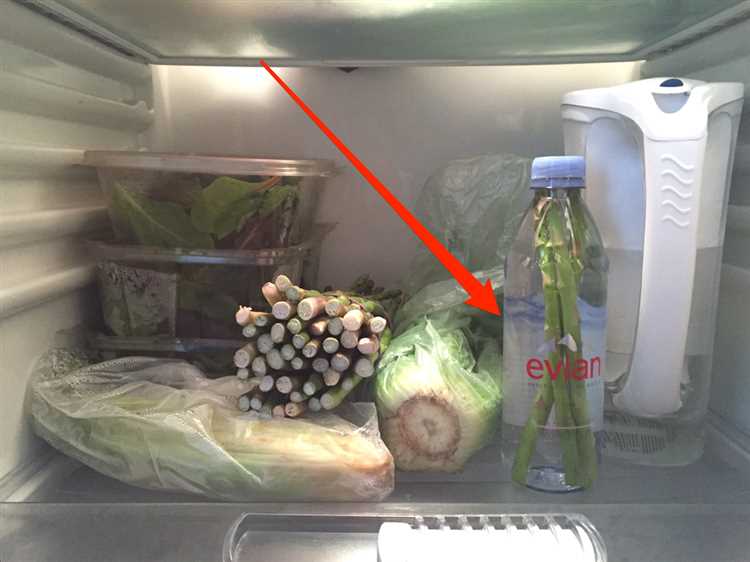
Transporting vegetables in plastic bags has both advantages and disadvantages. One of the main advantages is that plastic bags provide a lightweight and easily portable option for transporting vegetables. Plastic bags are light and easy to carry, making them ideal for transporting vegetables from one place to another.
Additionally, plastic bags offer protection for vegetables during transportation. The bags help to prevent damage from external factors such as bumps or rough handling, ensuring that the vegetables arrive at their destination in good condition. This is especially important for delicate vegetables that can easily bruise or become damaged.
On the other hand, there are some disadvantages to using plastic bags for transportation. One major concern is the environmental impact of using plastic bags. Plastic bags are not biodegradable and can take hundreds of years to decompose. They can end up in landfills or pollute waterways, causing harm to the environment and wildlife.
Another disadvantage is the potential for food spoilage. Plastic bags can create a humid environment that promotes the growth of bacteria and mold, leading to a shorter shelf life for the vegetables. This can result in food waste and financial loss for both the producer and the consumer.
In summary, while plastic bags offer convenience and protection for transporting vegetables, their use also has negative consequences. It is important to weigh the pros and cons and consider alternative options, such as reusable or biodegradable bags, to minimize the environmental impact and maximize the freshness of the vegetables during transportation.
Disadvantages of Storing Vegetables in Plastic Bags
While there are some benefits to using plastic bags for storing vegetables, there are also a number of disadvantages to consider:
1. Trapped moisture: Storing vegetables in plastic bags can trap moisture and promote the growth of mold and bacteria. Without proper air circulation, the excess moisture can cause vegetables to spoil faster.
2. Ethylene build-up: Some vegetables, such as onions and potatoes, release a gas called ethylene as they ripen. When stored in plastic bags, the build-up of ethylene can cause other vegetables to ripen and spoil more quickly.
3. Lack of visibility: Plastic bags can obscure the visibility of the stored vegetables, making it difficult to assess their freshness and determine if they are still suitable for consumption. This can lead to wastage of food.
4. Environmental impact: The use of plastic bags for storing vegetables contributes to plastic waste pollution. As they are not biodegradable, plastic bags can end up in landfills or in the ocean, posing a threat to wildlife and ecosystems.
5. Potential chemical leaching: Some plastic bags may contain harmful chemicals, such as phthalates or BPA, which can leach into the vegetables. These chemicals can have negative health effects when consumed over time.
Overall, while plastic bags can be convenient for storing vegetables, it is important to weigh the disadvantages and consider alternative storage options that are more environmentally friendly and do not pose health risks.
Moisture Retention
One of the advantages of storing vegetables in plastic bags is that it helps to retain moisture. Plastic bags create a barrier that prevents the moisture from evaporating, keeping the vegetables fresh for a longer period of time.
This can be particularly beneficial for vegetables that tend to lose moisture quickly, such as leafy greens and herbs. By placing these vegetables in plastic bags, you can help to preserve their crispness and prevent wilting.
However, it’s important to note that while plastic bags can help to retain moisture, they can also create a humid environment that may lead to the growth of mold or bacteria. To avoid this, it’s essential to choose the right type of plastic bag for storing vegetables and ensure that the bags are clean and dry before use.
In addition to moisture retention, it’s also important to consider the airflow and ethylene gas production when storing vegetables in plastic bags. It’s recommended to perforate the bags or opt for breathable plastic bags to allow for proper airflow and reduce the risk of ethylene gas accumulation.
- Pros of moisture retention when storing vegetables in plastic bags:
- – Helps to preserve crispness and prevent wilting
- – Extends the shelf life of leafy greens and herbs
- Cons of moisture retention when storing vegetables in plastic bags:
- – May create a humid environment that promotes mold or bacterial growth
In conclusion, while plastic bags can help to retain moisture and preserve the freshness of vegetables, it’s important to be mindful of the potential drawbacks and take necessary precautions to ensure proper storage.
Chemical Contamination
When it comes to storing vegetables in plastic bags, one major concern is the potential for chemical contamination. Plastic bags are typically made from polyethylene, a type of plastic that can leach chemicals into food when it is exposed to heat or sunlight. This can especially be a problem when storing vegetables, as they often have long shelf lives and may be stored in plastic bags for extended periods of time.
The chemicals that can be leached from plastic bags include phthalates, bisphenol A (BPA), and polyvinyl chloride (PVC). Phthalates are commonly used as plasticizers, making the plastic bags flexible and durable. However, they have been linked to numerous health problems, including hormone disruption and reproductive issues.
BPA is another chemical that can be found in plastic bags. It is commonly used in the production of polycarbonate plastics, which are often used in food packaging. BPA has been shown to mimic estrogen in the body, leading to potential hormonal imbalances and other health concerns.
PVC is yet another chemical that can be present in plastic bags. PVC is known to release toxic chemicals, such as dioxins, during its production and incineration. These chemicals can contaminate food and pose serious health risks when consumed.
Reducing Chemical Contamination
Fortunately, there are steps you can take to reduce the risk of chemical contamination when storing vegetables in plastic bags. Here are some tips:
- Choose bags made from safer materials. Look for bags that are labeled as BPA-free and phthalate-free. Opt for bags made from alternative materials, such as silicone or food-grade cloth.
- Avoid using plastic bags for hot or acidic foods. Heat and acidity can cause the plastic to break down more quickly, increasing the risk of chemical leaching.
- Store vegetables in the refrigerator. Cooler temperatures can help slow down the breakdown of plastic and reduce the risk of chemical contamination.
- Use glass or stainless steel containers instead. These materials do not leach chemicals into food and are a safer alternative to plastic bags.
Conclusion
While plastic bags may seem like a convenient option for storing vegetables, they come with the risk of chemical contamination. It is important to be aware of the potential dangers and take steps to minimize exposure. By choosing safer materials and practicing proper storage techniques, you can help protect yourself and your family from harmful chemicals.
| Chemical | Potential Health Risks |
|---|---|
| Phthalates | Hormone disruption, reproductive issues |
| BPA | Hormonal imbalances, other health concerns |
| PVC | Release of toxic chemicals, serious health risks |
Environmental Impact
Using plastic bags to store vegetables has a significant environmental impact. Plastic bags are made from non-renewable resources, such as petroleum, which require a substantial amount of energy to extract and process. The production of plastic bags also involves the release of greenhouse gases and other pollutants into the atmosphere.
Furthermore, plastic bags are not easily biodegradable and can persist in the environment for hundreds of years. When plastic bags end up in landfills or the ocean, they can cause harm to wildlife. Marine animals may mistake them for food or become entangled in them, leading to injury or death.
Plastic bags also contribute to the growing problem of plastic pollution. They are one of the most common types of litter found in our oceans and on our beaches. This pollution has far-reaching consequences for ecosystems, as plastic fragments can be ingested by marine organisms and enter the food chain.
Considering the environmental impact of plastic bags, it is important to explore alternative options for storing vegetables. Reusable and biodegradable materials, such as cloth produce bags or paper bags, can be a more eco-friendly choice. These options minimize the demand for non-renewable resources and reduce the amount of plastic waste that enters our environment.
Q&A,
Is it safe to store vegetables in plastic bags?
Yes, it is generally safe to store vegetables in plastic bags. Plastic bags can help to keep the vegetables fresh for a longer time by providing a barrier against moisture loss and preventing contact with harmful pathogens.
Are there any disadvantages of storing vegetables in plastic bags?
Yes, there are some disadvantages of storing vegetables in plastic bags. One of the main concerns is the potential release of harmful chemicals from the plastic into the food. Additionally, plastic bags can trap moisture, leading to mold and bacteria growth if not properly ventilated.
What types of vegetables are suitable for storing in plastic bags?
Most types of vegetables can be stored in plastic bags. However, it is best to avoid storing vegetables with high moisture content, such as leafy greens, in plastic bags as they can wilt quickly. Vegetables like carrots, potatoes, and onions are ideal for storage in plastic bags.
How should I store vegetables in plastic bags to maximize their freshness?
To maximize the freshness of vegetables stored in plastic bags, it is important to follow a few guidelines. First, make sure to wash and dry the vegetables thoroughly before storing them. Then, remove any excess moisture from the bags before sealing them. It is also recommended to store the bags in a cool, dry place away from direct sunlight.
Can I reuse plastic bags for storing vegetables?
Yes, plastic bags can be reused for storing vegetables. However, it is important to ensure that the bags are thoroughly cleaned and dried before each use. It is also recommended to use new bags for storing vegetables with strong odors to avoid cross-contamination.